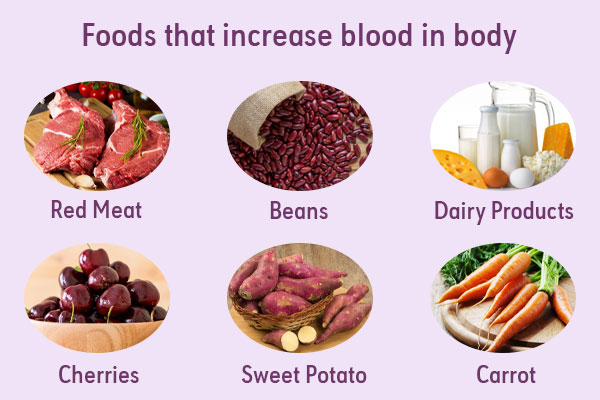Blood Gaining

Table of Contents
Introduction ( Blood Gaining )
In today’s fast-paced world, maintaining good health is a priority for many. One crucial aspect of health that often goes unnoticed is our blood health. The quality and quantity of our blood can significantly impact our overall well-being. This article will explore the importance of blood health and provide you with a comprehensive guide to “Blood Gaining Foods” to help you boost your blood’s vitality naturally.
The Importance of Blood Health
Our blood plays a pivotal role in transporting oxygen, nutrients, and hormones throughout our bodies. It’s also responsible for removing waste products and toxins. Maintaining healthy blood levels is essential for preventing anemia, fatigue, and a weakened immune system. To ensure your blood remains in optimal condition, incorporating the right foods into your diet is crucial. ( Blood Gaining )
Iron-Rich Foods
Iron is a vital component in red blood cells, and its deficiency can lead to anemia. Foods rich in iron include lean meats, poultry, fish, and plant-based sources like legumes, tofu, and fortified cereals. Consuming iron-rich foods can boost your hemoglobin levels and improve your blood’s ability to transport oxygen. ( Blood Gaining )
Vitamin C and Blood Absorption
Enhancing your body’s iron absorption is as important as getting enough iron. Vitamin C-rich foods like oranges, strawberries, and bell peppers can help increase iron absorption when consumed together with iron-rich foods. The synergy between these nutrients promotes overall blood health. ( Blood Gaining )
Leafy Greens – Nature’s Blood Boosters
Leafy greens like spinach, kale, and collard greens are packed with essential nutrients, including iron and folate. These greens help in the production of red blood cells and are a great addition to any diet aiming for better blood health. ( Blood Gaining )
The Power of Beets
Beets are renowned for their blood-boosting properties. They are rich in nitrates, which help relax and dilate blood vessels, improving blood flow. Additionally, beets are a good source of iron and folate, making them a valuable addition to your diet. ( Blood Gaining )
Protein-Packed Foods
Proteins are vital for maintaining healthy blood and muscles. Include sources like lean meats, poultry, eggs, and dairy products in your diet to ensure an adequate protein intake. ( Blood Gaining )
Fruits that Aid Blood Production
Fruits such as apples, pomegranates, and cherries are rich in antioxidants and can help improve blood circulation. Their natural sweetness makes them a delicious way to support your blood health. ( Blood Gaining )
Spices and Herbs for Blood Health
Certain spices and herbs like ginger, garlic, and turmeric have anti-inflammatory properties that can support your blood health. Incorporate them into your meals to enhance the flavor and boost your blood health simultaneously.
Dairy and Blood Building
Dairy products like yogurt and cheese are excellent sources of vitamin B12, which is essential for red blood cell production. Including dairy in your diet can help maintain healthy blood levels.
The Role of Hydration
Staying adequately hydrated is fundamental for overall health, including blood health. Water helps in the transportation of nutrients and oxygen through the blood, so be sure to drink enough fluids daily.
A Balanced Diet for Blood Health
A balanced diet that includes a variety of the foods mentioned above will contribute to optimal blood health. Ensure that your meals are diverse and rich in essential nutrients to support your blood’s well-being.
Lifestyle Choices to Support Your Blood
In addition to a healthy diet, lifestyle choices play a significant role in maintaining good blood health. Regular exercise, stress management, and adequate sleep can all contribute to a healthier circulatory system.
Blood Donations and Health
Donating blood is not only an act of kindness but also beneficial for your own health. It stimulates the production of new blood cells and helps maintain healthy blood levels.
Conclusion
Maintaining healthy blood is a fundamental aspect of overall well-being. By incorporating blood-gaining foods into your diet and making positive lifestyle choices, you can ensure your blood remains in optimal condition. Remember, a balanced diet and a healthy lifestyle go hand in hand in promoting blood health.
FAQs
- What are the common symptoms of low blood levels? Common symptoms of low blood levels (anemia) include fatigue, weakness, pale skin, and shortness of breath.
- How often should I donate blood for my own health benefits? Donating blood every 8 weeks is generally recommended to maintain your blood’s health while helping others in need.
- Can vegetarians and vegans maintain good blood health? Yes, vegetarians and vegans can maintain good blood health by consuming plant-based iron sources and incorporating vitamin C-rich foods to enhance iron absorption.
- Are there any foods to avoid for better blood health? Foods high in saturated fats and excessive sugar can negatively impact your blood health. It’s best to limit their consumption.
- What role does hydration play in blood health? Staying well-hydrated is essential for blood circulation and nutrient transport. Drink plenty of water to support your blood’s functions.
